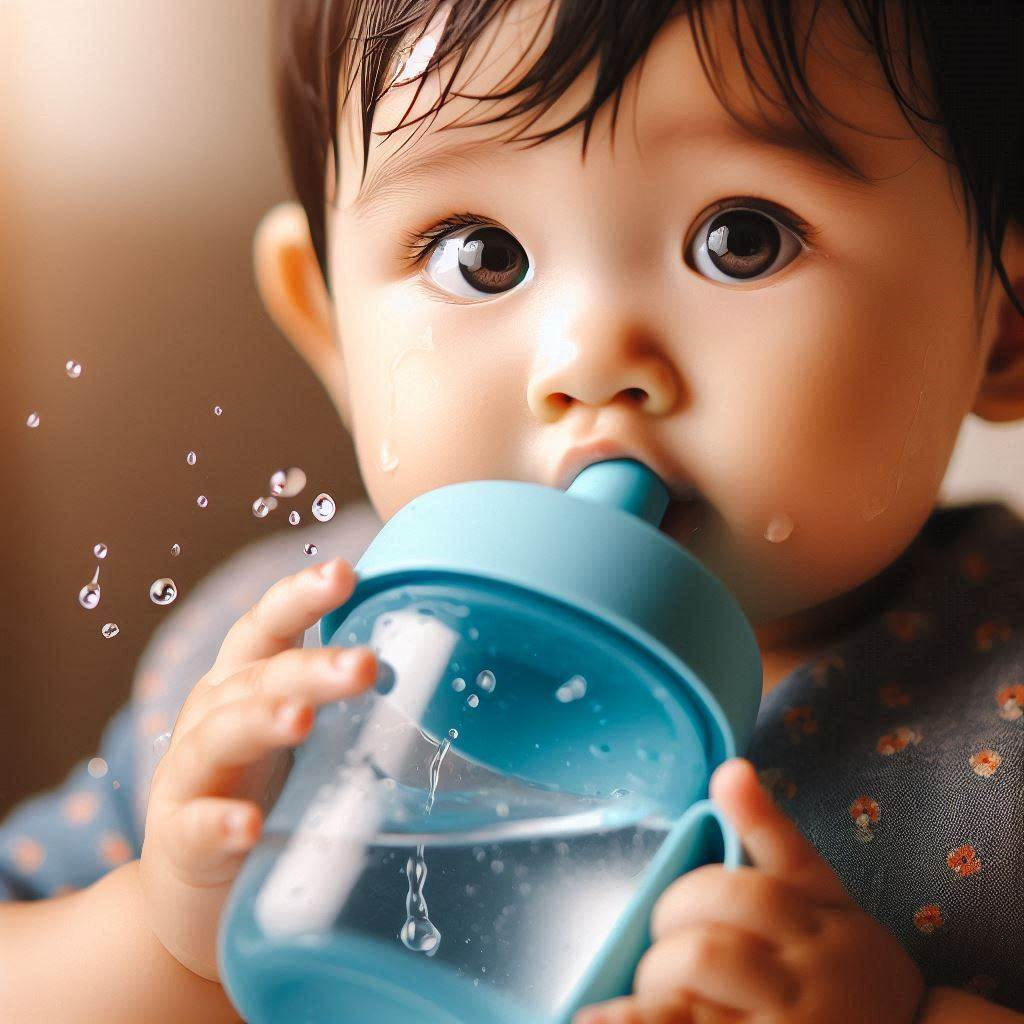How to Avoid Water Intoxication for Baby
As a parent, you want to give your baby the best start in life. That includes keeping them hydrated and healthy. But did you know that too much water can actually be dangerous for babies? It’s a scary thought, but don’t worry – we’re here to help you understand and prevent water intoxication in your little one.
Quick Answer
To avoid water intoxication in babies, only give breast milk or formula to infants under 6 months. For babies 6-12 months old, offer small sips of water (4-8 ounces per day) with meals. Never dilute formula or give excessive amounts of water. Always supervise water play and avoid letting babies drink bath or pool water.
What is Water Intoxication?
Water intoxication, also called water poisoning, happens when a baby drinks too much water. This can mess up the balance of important minerals (electrolytes) in their body. It’s a serious condition that can make babies very sick.
Why Babies Are at Risk
Babies’ bodies are different from adults in a few key ways:
- Their kidneys are still developing and can’t handle lots of water
- They have a smaller blood volume, so extra water affects them more
- Their brains are still growing, making them more sensitive to changes in sodium levels
When a baby drinks too much water, it can lower the amount of sodium in their blood. This is called hyponatremia, and it can be really dangerous.
Signs of Water Intoxication
Knowing what to look for can help you spot trouble early. Here are some signs that your baby might have had too much water:
- Feeling dizzy or confused
- Being extra sleepy or cranky
- Puffy face, arms, or legs
- Throwing up
- Peeing a lot, and the pee looks very clear
- In serious cases, they might have seizures
If you see any of these signs, call your baby’s doctor right away. It’s always better to be safe than sorry!
How to Prevent Water Intoxication
Now that we know why water intoxication is dangerous, let’s talk about how to keep your baby safe.
Age-Appropriate Water Intake
Different ages need different amounts of water. Here’s a simple guide:
| Baby’s Age | How Much Water They Need |
|---|---|
| 0-6 months | No extra water needed – breast milk or formula is enough |
| 6-12 months | Small sips of water with meals, up to 4-8 ounces a day |
Preparing Formula Safely
If you’re using formula, it’s super important to mix it right:
- Always follow the instructions on the can
- Don’t add extra water to stretch the formula
- Measure the water first, then add the powder
Water Play Safety
Babies love playing in water, but it can be risky:
- Always watch your baby during bath time or water play
- Don’t let them drink bath water or pool water
- Empty kiddie pools and water tables when not in use
Other Drinks
Stick to breast milk or formula for babies under 6 months. For older babies, avoid giving watered-down juices or other drinks that might add extra water to their diet.
A Real-Life Story: Baby Alex’s Close Call
Sarah, a first-time mom, was worried about her 4-month-old son Alex getting dehydrated during a hot summer. She started giving him small bottles of water between feedings. At first, Alex seemed fine. But after a few days, he became fussy and wouldn’t eat. Then, he started having trouble staying awake.
Scared, Sarah rushed Alex to the emergency room. The doctors found that his sodium levels were dangerously low due to water intoxication. Alex spent two days in the hospital getting treatment. Thankfully, he made a full recovery.
Sarah learned an important lesson: babies don’t need extra water before 6 months old. Now, she shares her story to help other parents avoid the same scary situation.
Common Questions About Baby Hydration
Q: How do I know if my baby is getting enough fluids?
A: Look for these signs:
- 6-8 wet diapers a day
- Soft spot on top of the head isn’t sunken
- Baby seems content after feeding
- Tears when crying
Q: Can I give my baby water if it’s really hot outside?
A: For babies under 6 months, extra breast milk or formula is better than water. For older babies, small sips of water are okay, but don’t overdo it.
Q: Is it safe to use water to help with constipation?
A: Talk to your doctor first. They might suggest other safe ways to help your baby poop.
The Science Behind Water Intoxication
Let’s break down what happens in a baby’s body during water intoxication:
- Too much water enters the bloodstream
- This dilutes the sodium in the blood
- Water moves into body cells to balance things out
- Cells swell up, which can be dangerous, especially in the brain
Babies are more at risk because their bodies are small and still developing. Their kidneys can’t get rid of extra water as well as adult kidneys can.
Tips for Keeping Your Baby Safely Hydrated
- Offer the breast or bottle more often on hot days
- Look for signs of thirst, like a dry mouth or fewer wet diapers
- If your baby is eating solid foods, offer water-rich fruits like watermelon
- Keep your home cool to prevent excessive sweating
- Dress your baby in light, breathable clothes
When to Call the Doctor
It’s always better to be safe than sorry. Call your pediatrician if:
- Your baby seems unusually sleepy or hard to wake up
- They’re not having as many wet diapers as usual
- You notice any of the signs of water intoxication we talked about earlier
- You’re worried about your baby’s fluid intake for any reason
Wrapping Up: Keeping Your Baby Safe and Healthy
Water is essential for life, but too much of a good thing can be dangerous for babies. By following these guidelines, you can keep your little one safely hydrated:
- Stick to breast milk or formula for babies under 6 months
- Introduce small amounts of water with meals after 6 months
- Never dilute formula or breast milk
- Watch your baby closely during water play
- Know the signs of water intoxication and when to get help
Remember, every baby is unique. If you have questions about your baby’s specific needs, don’t hesitate to talk to your pediatrician. They’re there to help you give your baby the best care possible.
Tips for New Parents
- Review your baby’s feeding routine to make sure they’re getting the right amount of fluids
- Share this information with other caregivers who look after your baby
- Make a plan for safe water play as the weather gets warmer
- Keep your pediatrician’s number handy in case you have questions or concerns
By staying informed and attentive, you’re doing a great job keeping your baby healthy and happy. You’ve got this, parents!

Jessica Winter is a passionate parenting blogger with two years of experience guiding new and seasoned parents through the joys and challenges of raising babies. Her insightful posts blend personal anecdotes with expert advice to offer a warm and practical perspective on modern parenting.

